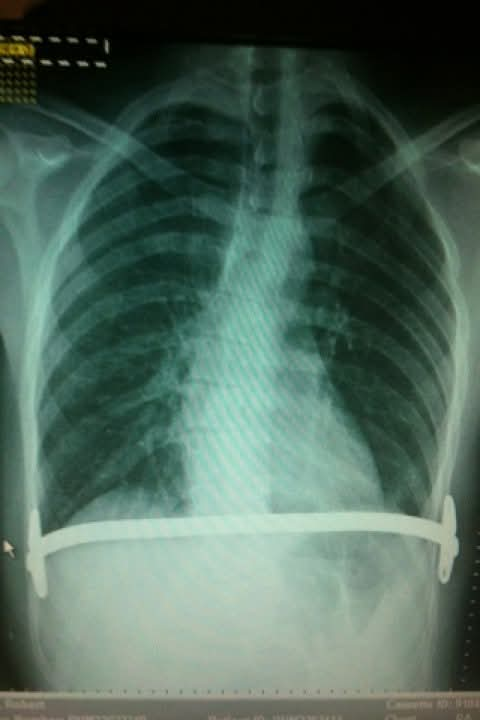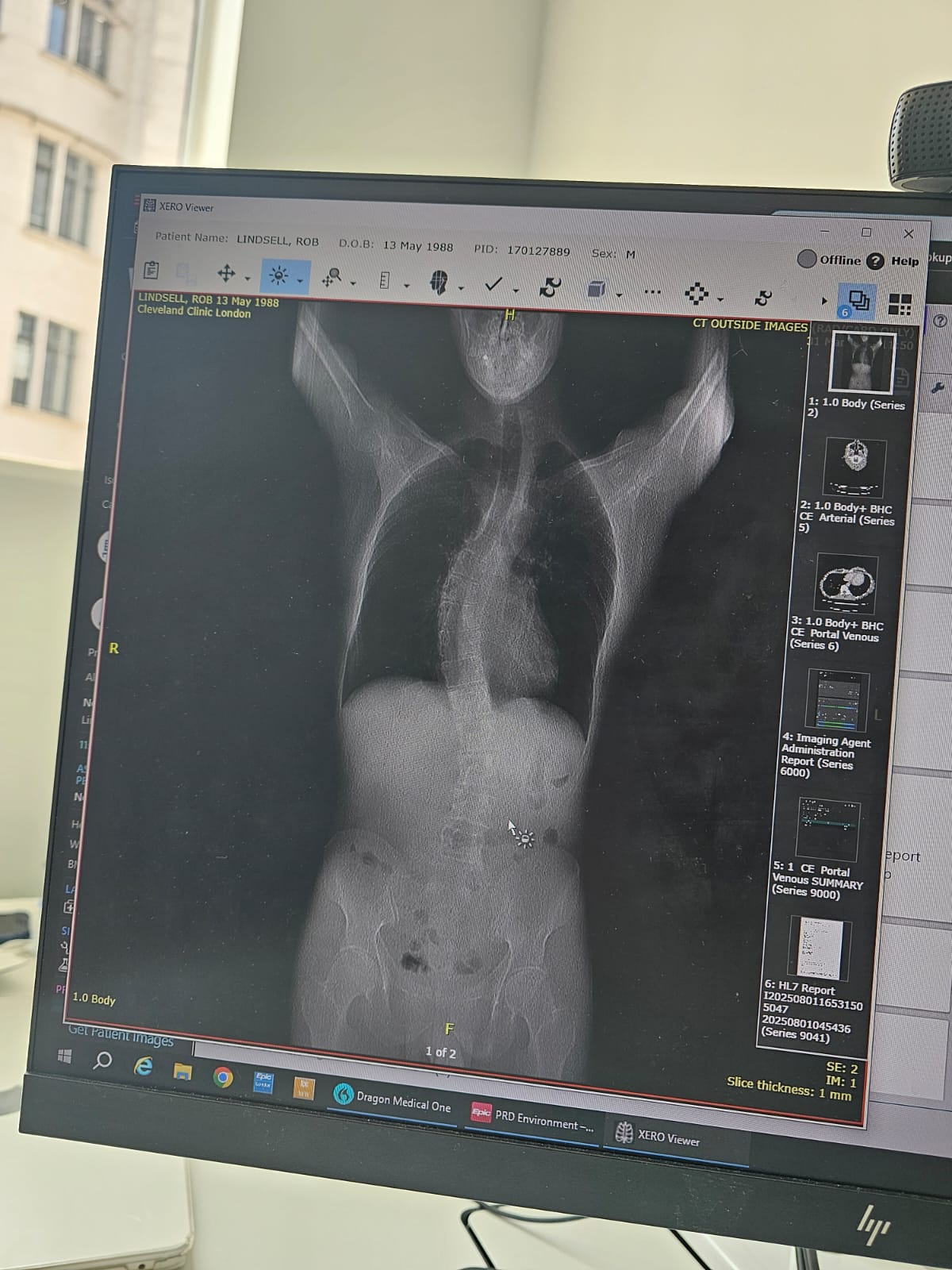A man who has spent years unable to eat solid food following an unsuccessful operation on his ribs more than a decade ago hopes a new surgery will help him regain a “sense of normality”.
Rob Lindsell, 37, went under the knife in July 2010 for a condition called pectus excavatum, which causes the breastbone to press inwards and create a dip between the ribs.
Mr Lindsell, a coffee shop owner from Bournemouth, said the condition restricted his everyday life, affecting his heart and lungs, causing breathlessness and chest pain.
But the operation that was meant to help him live more comfortably, instead left him unable to eat big meals and eventually struggle to keep any solid food down.
“I am having a lot of issues whereby food just isn’t staying down; I have insane acid reflux. I wake up in the night and literally choke on my stomach acid,” he told The Independent.

However, Mr Lindsell claims the NHS is unable to offer him the surgery he needs, leaving him with no other option but to launch a fundraiser to help pay the private medical costs.
“Every day is a struggle, both physically and emotionally. I just want a chance to live with some sense of normality again,” he said.
“It’s exhausting. I can’t go out for meals with friends or family. I can’t gain weight. I can’t date or build the kind of life I thought I would have by now.”
About one in 1,000 children will have pectus excavatum, according to charity Asthma and Lung UK. Like Mr Lindsell, about one in 10 people with the condition also have scoliosis – curvature of the spine.
Although some people will not experience any symptoms, it can cause chest pain, breathlessness, extreme tiredness, dizziness and a fast heart rate.
In Mr Lindsell’s case, he required surgery, and when he was aged 22, he was given the Nuss Procedure. It involves placing one or more stainless steel bars into the chest to alter the position of the breastbone. These bars are left on for two or three years before being removed.

Mr Lindsell said that because he has scoliosis, he faced complications and now believes the surgery was not suitable for his condition.
“It’s an ‘S shaped’ scoliosis, so it causes my body to twist tightly, and with that, the procedure on the left-hand side stayed exactly where it should. But on the right, my chest falls backwards and to the side, so it actually fits underneath my armpit and then presents itself as a bit of a hunch on my back,” he explained.
Since the surgery 15 years ago, Mr Lindsell said he has struggled to eat big meals, and over the last couple of years, it’s got progressively worse, forcing him to survive on a liquid diet.
“I can no longer eat properly. I silently aspirate liquids and choke easily. I’ve lost nearly two stone in 6 months,” he said.
“I survive off six of Huel meal replacements a day, and then when I’m not having to move about a lot at home, I will try and eat something soft or something that melts like a soup or puree,” he added.
To find the cause, Mr Lindsell went to hospital for an endoscopy, a medical procedure where a camera is inserted down the throat, and medics discovered his stomach was pushed out of place by a 10cm hernia – when part of an organ protrudes through the muscle wall and causes a lump or swelling.

He said that where one side of his rib cage has collapsed following the surgery, the deformity has caused pressure inside his body that led to the hernia, which has then caused chronic acid reflux and constant regurgitation of food.
However, he claims doctors have told him the hernia is “liveable” and said he does not need surgery, despite the fact that he is struggling to eat and losing weight.
“I’ve been refused surgical help and told to see a dietitian as though this is something I can manage through willpower and a meal plan,” he said.
“I told the doctor that since I last saw him in April, I’ve lost another half a stone, and he sat there and said, ‘you actually look a lot better than the last time I saw you’. But I’m visibly much skinnier.”
Mr Lindsell plans to make a formal complaint against the NHS, but in the meantime, has launched a GoFundMe campaign to help raise money for private medical costs. He set out to get a second opinion and for surgery to remove the hernia.
So far, the money raised has helped him get another X-ray, which revealed his spine has become more curved and his oesophagus is being crushed in multiple places, exacerbating the symptoms of the hernia.
“The hernia is causing a lot of issues, but it seems the majority of my issues lie with the new shape of my spine. It is the worst-case scenario for me because it is not an easy fix,” Mr Lindsell explained.
A spokesperson for University Hospitals Dorset said: “For confidentiality reasons, we are unable to comment on individual patients, however, we would always encourage those who would like to discuss their care or treatment options to get in touch with our Patient Advice and Liaison Team.”






